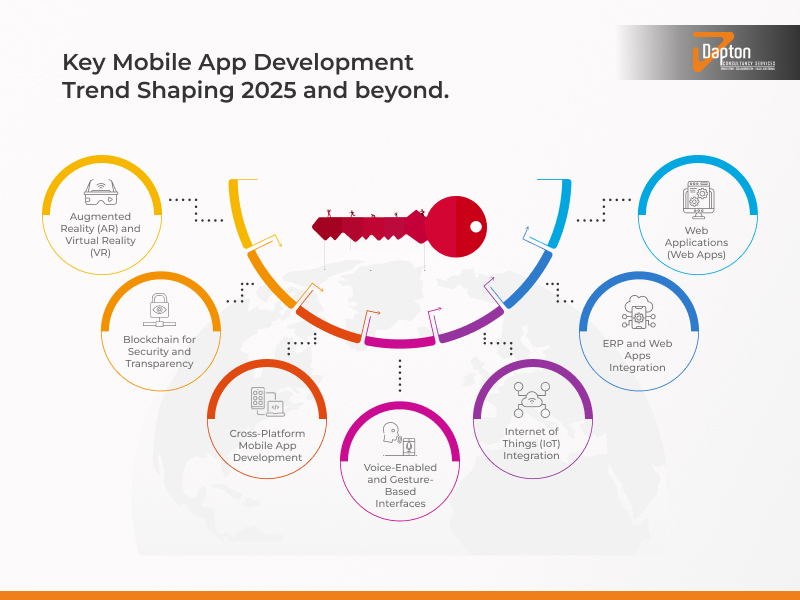In 2025, the business world operates through the palm of a hand. Smartphones have become the primary medium through which people browse, purchase, and interact with brands. This major shift from desktop to mobile-first experiences has created both opportunities and challenges for companies aiming to stay competitive in digital markets like the USA, UK, Canada, and Australia.
Statistics show that mobile devices account for nearly 80% of all global web traffic. Consumers no longer want to search websites on browsers; they want fast, seamless interactions through mobile applications. Whether it’s ordering food, booking a doctor’s appointment, managing finances, or attending an online class, everything now depends on mobile apps.
To meet this rising demand, smart businesses are investing in custom mobile app development. A custom app provides tailored, intuitive, and secure experiences that directly align with business goals and customer expectations. Whether you are a startup or an enterprise, investing in a professional mobile app development company ensures you don’t just follow trends but lead them.
Why Custom Mobile App Development Is Essential in 2025
1. Uniquely Tailored to Your Business
A custom mobile application is built exclusively for your business goals and your audience. You can add creative, functional, and operational features that generic, pre-built apps can’t offer.
For example, a retail company might design an app focusing on personalized product recommendations and easy returns, while a healthcare provider might prioritize patient data confidentiality and appointment scheduling features.
Unlike ready-made solutions, custom mobile apps ensure every screen, button, and workflow reflects your company’s unique identity and purpose. This personalization not only enhances customer experience but also differentiates your brand in a crowded marketplace.
2. Enhanced Security and Data Protection
With rising cyber threats, security is now a top concern. Ready-made applications typically come with standard security configurations that may not cover your specific risks. Custom mobile app development lets you create specialized security frameworks—like AI-based fraud detection, biometric authentication, or encrypted APIs.
If your business operates in sectors like finance, healthcare, or e-commerce, ensuring secure data transactions is essential for compliance and trust. A reputable mobile app development company will integrate advanced encryption methods, regulatory compliance checks (such as GDPR, HIPAA, or PCI DSS), and multi-factor authentication to protect your users and business assets.
3. Seamless Integration with Business Ecosystems
Every growing business uses multiple digital systems—CRMs, ERPs, inventory management tools, marketing automation software, and analytics dashboards. A custom mobile app can integrate perfectly with these systems.
For instance, a retail app can sync inventory with warehouse software, a fitness app can integrate with wearable devices, and a banking app can connect with third-party payment platforms. This integration not only centralizes data but also increases operational efficiency, reduces errors, and allows for a real-time view of your business performance.
4. Improved Scalability and Long-Term ROI
Custom mobile apps are designed to grow with your business. As your company expands, developers can easily add features such as new payment options, customer segments, or AI-driven analytics tools without restructuring the entire system.
While initial investments in custom mobile app development may be higher than off-the-shelf platforms, the returns are significantly greater in the long run. Instead of paying for upgrades, licenses, or limitations, you maintain full ownership and control of your app—ensuring sustainable value creation and stronger ROI.
5. Real-Time Customer Engagement and Data Insights
A mobile app is the most direct communication channel between your brand and your customers. Through push notifications, in-app chat, loyalty programs, and personalized dashboards, you can engage customers at the perfect moment.
Beyond engagement, apps also deliver valuable analytics. Businesses can track customer behaviour—such as time spent on the app, frequently visited screens, and conversion points—and use this data to improve services.
Key Mobile App Development Trends Shaping 2025 and beyond.

Technology evolves rapidly, and staying ahead means aligning your app strategy with these innovations.
Augmented Reality (AR) and Virtual Reality (VR)
AR/VR applications are gaining traction beyond gaming into retail, education, healthcare, and real estate. Mobile apps use AR to overlay virtual objects onto the real world, creating immersive shopping experiences and virtual tours, while VR apps offer fully simulated environments for training and entertainment. Businesses are increasingly integrating AR/VR to stand out and engage users deeply.
Blockchain for Security and Transparency
Blockchain’s decentralized and immutable ledger technology is shaping mobile apps in finance, supply chain, and healthcare by enhancing transaction security and data transparency. Blockchain-based mobile apps help reduce fraud, automate contract execution with smart contracts, and provide traceable data flows—critical as users demand safer digital experiences.
Cross-Platform Mobile App Development
To efficiently reach users on multiple devices, cross-platform frameworks such as Flutter and React Native continue to gain popularity. These tools enable developers to write a single codebase that performs consistently across iOS and Android, reducing development time and cost while maintaining near-native user experiences.
Voice-Enabled and Gesture-Based Interfaces
Voice commands and gesture controls are becoming vital parts of app UX, offering users hands-free and intuitive ways to interact, especially in accessibility contexts or for apps designed for wearables and smart home devices. Integration with virtual assistants and voice recognition is increasingly standard.
Internet of Things (IoT) Integration
Mobile apps increasingly connect with IoT devices—smart watches, home automation, industrial sensors—to provide seamless control and real-time data monitoring. These integrations expand app functionalities and create opportunities for innovative business models and enhanced customer experiences.
ERP and Web Apps Integration
A critical trend in 2025 is the increased fusion of mobile apps with Enterprise Resource Planning (ERP) systems and web applications. Custom mobile apps designed to integrate seamlessly with ERP software enable real-time data access and updates across departments such as finance, inventory, HR, and supply chain, empowering businesses with instant insights and faster decision-making. Web apps complement mobile apps by offering cross-device accessibility and unified user experiences. The rise of Progressive Web Apps (PWAs) blurs the line between native and web applications, providing quick loading times, offline modes, and easy installation without app stores. This convergence helps businesses digitize core operations while providing employees and customers with flexible access to critical services anywhere, anytime.
Web Applications (Web Apps)
Web applications continue to evolve as a powerful alternative or complement to native mobile apps. Modern web apps harness advanced technologies such as PWAs and WebAssembly to deliver fast, reliable, and interactive experiences directly in browsers without requiring app store installation. These scalable, cross-platform solutions offer benefits like instant updates, offline functionality, and lower development and maintenance costs. In 2025, web apps are essential for businesses aiming to reach broad audiences across devices while ensuring high performance and seamless integration with mobile and enterprise systems.
Region-Specific Opportunities in the USA, UK, Canada, and Australia
United States: Tech-Driven and Customer-Focused
The US leads the global digital economy with a smartphone penetration rate of around 85%. Mobile app revenue in the US is projected to exceed $120 billion in 2025, propelled largely by sectors such as e-commerce, healthcare, fintech, and transportation. Telemedicine app usage is expected to grow at a CAGR of more than 20% by 2025, reflecting the booming healthcare segment’s reliance on mobile solutions. Startups benefit from app-driven scalability, while enterprises leverage AI and data analytics for optimized customer engagement and operational efficiency. Partnering with a reputable mobile app development company enables businesses to merge creativity with advanced technologies and meet dynamic market demands (Statista, 2025; Grand View Research, 2024).
United Kingdom: Building Digital Trust
Mobile adoption in the UK stands at over 85%, with fintech, retail, and digital services driving app growth. Over 60% of UK adults regularly use mobile banking apps, reflecting the fintech sector’s dominance. Retailers increasingly invest in custom mobile apps that facilitate seamless payments and integrate loyalty programs, supporting enhanced customer retention. The focus on privacy and security, aligned with GDPR compliance, further accelerates demand for trustworthy mobile applications. The UK’s commitment to sustainability also encourages digital transactions that reduce paper consumption (Ofcom, 2024; UK Finance, 2025).
Canada: Accessibility and Bilingual Experience
Canada experiences about 88% smartphone penetration with significant growth in healthcare, education, and financial service apps. Its bilingual culture necessitates apps supporting English and French, enabling a broader consumer reach. Approximately 70% of Canadian businesses are expected to adopt employee-focused mobile apps for remote workforce management by 2025. Telehealth and e-learning platforms are key sectors driving mobile app investments, influenced by increased digital adoption due to the pandemic and ongoing remote work trends (Canadian Internet Registration Authority, 2024; Deloitte, 2025).
Australia: Mobile-First Lifestyle Innovation
Australia’s smartphone penetration reaches approximately 89%, with rapid 5G adoption fueling mobile innovation. Retail mobile commerce is forecasted to grow annually by over 15%, driven by apps that personalize shopping and integrate point-of-sale options. The fitness sector utilizes apps for digital memberships and scheduling, while real estate firms deploy AR-enabled apps for virtual property viewings. These mobile-first trends emphasize the growing necessity of custom mobile app development services within Australian consumer and business markets (Australian Communications and Media Authority, 2025; IBISWorld, 2024).
Industry Impact of Custom Mobile Apps
Retail and E-Commerce
Mobile commerce in these regions is projected to account for over 70% of total online sales by the end of 2025. Retailers can use apps for product discovery, instant checkout, and loyalty tracking.
Healthcare
From online consultations and prescription management to symptom analysis through AI, healthcare mobile apps save time, reduce hospital workload, and improve patient outcomes.
Finance
FinTech apps drive instant transactions, investment management, and budgeting. Custom finance apps can integrate with multiple payment systems, ensure biometric security, and offer real-time analytics dashboards.
Education
E-learning apps allow students to personalize their learning paths, access e-books, and track progress. In 2025, mobile-based microlearning and certification apps will dominate the online education space.
Manufacturing and Logistics
Real-time inventory tracking, delivery optimization, and remote equipment monitoring are simplifying industrial operations. Apps integrated with IoT sensors provide 24/7 visibility and data accuracy.
Travel and Hospitality
Custom apps in travel simplify bookings, offer itinerary suggestions, and enhance guest experiences with location-based recommendations and digital check-ins.
Choosing the Right Mobile App Development Company
Finding a capable mobile app development company is the key to success. Here’s what to look for:
- Proven Portfolio: Check previous apps to assess quality and innovation.
- Industry Experience: Work with teams familiar with your sector’s compliance and user needs.
- End-to-End Capabilities: From UI/UX design to testing and support, an all-in-one partner ensures consistency.
- Scalability: Choose developers capable of adding future enhancements with minimal disruption.
- Transparent Communication: Opt for companies that share project milestones, feedback loops, and clear cost breakdowns.
- Post-Launch Support: Regular maintenance and updates keep your app performing reliably.
The Custom App Development Lifecycle
- Strategy & Discovery: Identify goals, user demographics, and features needed.
- Wireframing & Design: Create visually appealing blueprints for layout and user flow.
- Development: Code features, integrate APIs, and ensure platform compatibility.
- Testing: Detect bugs, enhance performance, and test across multiple devices.
- Deployment: Publish to app stores with proper keywords and ASO practices.
- Maintenance: Update code, improve performance, and adapt to new OS versions.
Measuring Success: KPIs to Track in Mobile App Development
Tracking the right KPIs is critical to understanding how your mobile app performs, identifying areas for improvement, maximizing user engagement, and ultimately driving revenue.
1. Average Session Duration and Bounce Rate
- Average session duration measures how much time users spend actively interacting with your app in a single session. Longer sessions typically indicate that users find the app valuable and engaging.
- Bounce rate is the percentage of users who open the app but leave quickly without meaningful interaction. A high bounce rate signals usability or value issues that need addressing. Improving onboarding experiences and intuitive navigation helps reduce bounce rates.
2. Monthly Active Users (MAU)
- MAU tracks the unique number of users who engage with the app over a month. It is a core indicator of app popularity, demand, and retention. A growing MAU means your app is attracting and keeping an active user base, while stagnation or decline requires immediate attention to marketing or product updates.
3. Conversion Rate per App Action
- This measures how effectively users complete desired actions, such as purchases, form completions, or feature usage. Tracking conversion rates at multiple funnel points (e.g., product views to cart addition to checkout) helps optimize user journeys and increase revenue-generating behaviors.
4. Push Notification Engagement Rate
- This KPI shows the percentage of users who interact with push notifications by opening the app or performing an in-app action. High engagement rates indicate effective targeting and messaging strategies, while low rates suggest notifications may be intrusive or irrelevant.
5. Customer Retention Over 6–12 Months
- Retention rate tracks the percentage of users who continue using the app over a defined period. It’s one of the most important KPIs because retaining users is much more cost-effective than acquiring new ones. Tracking retention at day 1, day 7, and month 1 and 6 helps identify user loyalty levels and app “stickiness.”
6. Revenue Generated from In-App Activities
- This includes all monetization metrics—total revenue, average revenue per user (ARPU), lifetime value (LTV), and in-app purchases. Correlating revenue with user engagement behaviours identifies high-value segments and assesses whether monetization strategies are working efficiently.
Importance and Industry Benchmarks (2025)
- According to recent industry reports, average session durations vary by app category, with productivity and finance apps typically keeping users for 15–30 minutes a day on average.
- Industry benchmarks show that top apps can retain up to 40%+ of users after 30 days, while the average is closer to 20–25%. Focused onboarding, personalized content, and valuable push notifications help improve these metrics.
- Conversion rates for e-commerce apps range between 3-5%, and push notification engagement rates vary between 10-30%, depending on message relevance and timing.
- Successful apps see ARPU ranging widely by sector, from $15–25 in gaming, $40–60 in subscription services, to over $100 in finance apps annually.
Optimizing these KPIs involves continuous data tracking via analytics tools (e.g., Firebase Analytics, Adjust, or AppsFlyer) and actionable experimentation such as A/B testing, personalized messaging, and feature enhancements.
Comparison: Custom Apps vs. Ready-Made Apps
| Feature | Custom Mobile App | Ready-Made App |
|---|---|---|
| Personalization | 100% tailored to business | Generic templates |
| Security | Custom data protection layers | Basic security |
| Scalability | Scales easily | Limited expandability |
| Maintenance | Fully controlled by business | Dependent on vendor |
| Branding | Unique interface, colors, design | Restricted customization |
| Integration | Connects easily with existing tools | Often incompatible |
| Ownership | Full intellectual property rights | Shared or none |
The Road Ahead: The Future Is Mobile
In 2025, mobile app development trends continue to revolve around harnessing technologies like artificial intelligence (AI), 5G connectivity, augmented reality (AR), virtual reality (VR), and blockchain to create hyper-personalized, secure, and engaging user experiences. AI and machine learning power smart features such as personalized content, predictive analytics, and virtual assistants, while 5G enables faster data transfer, low latency, and richer multimedia content that redefines app performance and capabilities. Progressive Web Apps (PWAs) blur the lines between native and web experiences, allowing for seamless, fast, and offline-capable applications that work across devices. Developers also prioritize accessibility and inclusivity in UX design, catering to broader demographics with touchless interaction and AI-powered interfaces. Cross-platform frameworks like Flutter and React Native remain essential for efficient, consistent app delivery across iOS and Android.
Looking ahead to 2026, trends emphasize a shift from rapid launches to smarter, more strategic app builds where AI moves from a development tool to a core strategic component. AI will increasingly influence app design, personalizing and evolving user experiences dynamically on-device, enhancing privacy and responsiveness. Cross-platform development will further unify mobile, desktop, wearables, and IoT devices into cohesive ecosystems powered by shared codebases and synchronized experiences. Immersive technologies like AR and VR will become mainstream across retail, training, and entertainment, complemented by natural conversational UIs and voice-enabled commands. Architecturally, modular, microservices-based, and edge-enabled apps will dominate, allowing independent feature deployments, reduced latency, and superior scalability. Environmental sustainability and ethical AI use will also gain prominence as industry standards evolve.
Together, 2025 and 2026 represent a maturing mobile era where innovation balances speed, personalization, security, and strategic depth, empowering businesses to lead with adaptive, intelligent, and immersive mobile solutions.
Conclusion: Invest Now, Reap Later
The digital economy rewards those who innovate first. Businesses in the USA, UK, Canada, and Australia stand to gain immensely from adopting mobile-first business models.
Custom mobile apps act as direct, cost-effective bridges between enterprises and their customers. They enhance engagement, deliver stronger ROI, and help in building scalable systems that evolve with user needs.
By collaborating with a professional mobile app development company, your business can convert vision into value and turn every user interaction into a growth opportunity. In 2025, mobility is not just a trend but it’s the foundation of business success.
Unlock your business’s true potential with Daptoncs, your expert custom mobile app development partner. Whether you want to boost customer engagement, optimize operations, or launch innovative, scalable mobile solutions tailored to your unique needs, we make your vision a reality. Don’t settle for generic apps that hold you back, choose bespoke development designed for security, performance, and exceptional user experience. Contact Daptoncs today for a free consultation and start accelerating your growth across the USA, UK, Canada, and Australia. Let’s build the app that sets you apart in 2025 and beyond.



